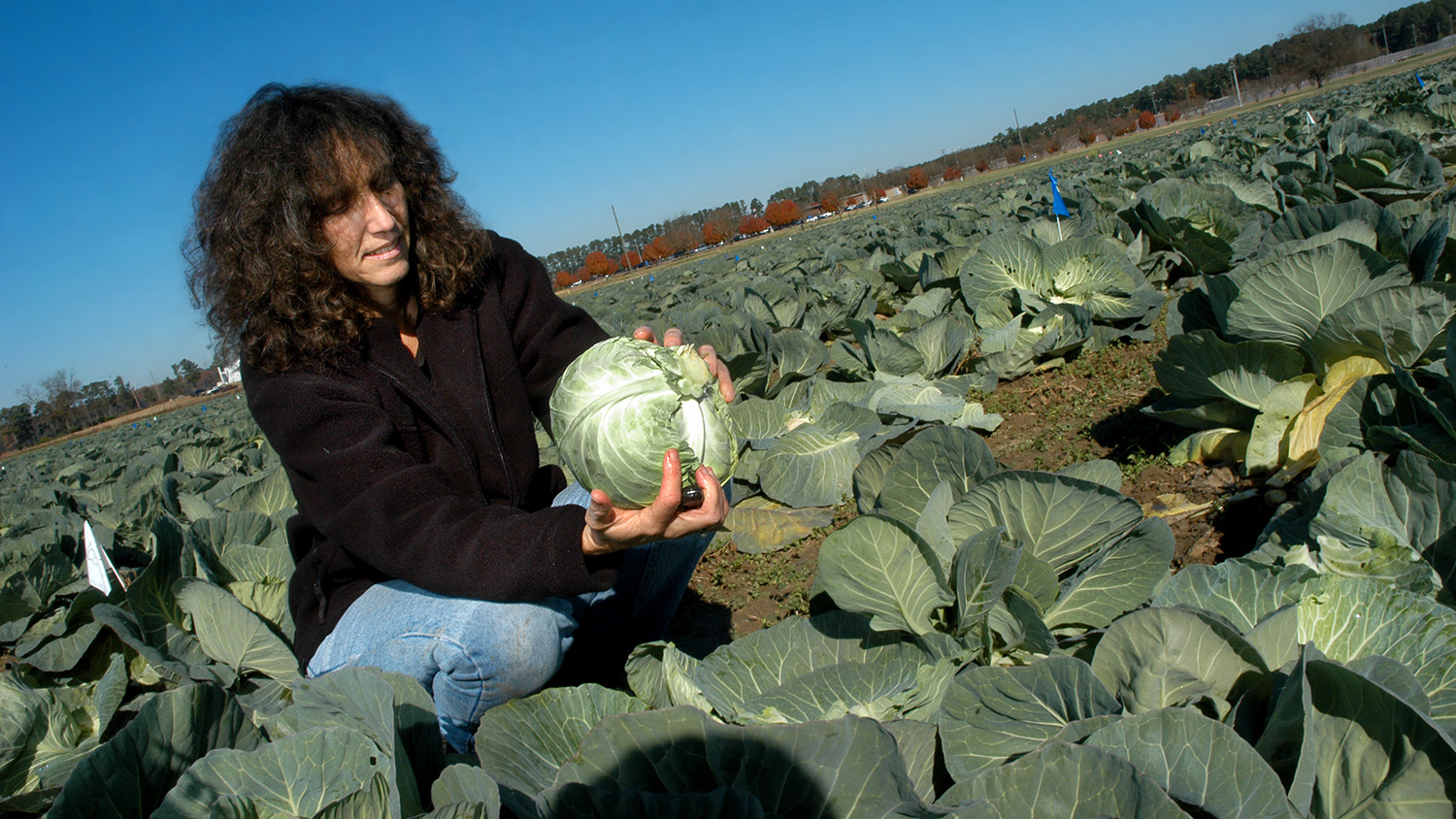Facilitating Farm to Fork

If every North Carolinian spent just 10 percent of their food dollars on locally grown, raised or caught foods, $3.5 billion would stay in our state’s economy each year.
“And that’s not by spending any more for your food — that’s just reallocating a fraction of your existing food dollars toward foods produced by North Carolina’s farmers and fisheries,” said NC State University faculty member Dr. Nancy Creamer.
Creamer, the Blue Cross and Blue Shield of North Carolina Foundation/W.K. Kellogg Distinguished Professor in Sustainable Community-Based Food Systems, directs the Center for Environmental Farming Systems (CEFS), which created the NC 10% Campaign. A horticultural scientist by training, she is a national leader in the sustainable agriculture movement and serves on the executive committee for a network of fellow Kellogg distinguished professors throughout the United States who are working on sustainable food systems.
The NC 10% Campaign is just one of many innovative and impactful programs run by CEFS to build North Carolina’s sustainable and local food economy as a way to stimulate economic development and job creation, bolster the viability of local farms and fisheries, and help address diet-related health problems.
CEFS is a statewide partnership of NC State, NC Agricultural & Technical State University and the North Carolina Department of Agriculture and Consumer Services. Its mission is to develop and promote just and equitable food and farming systems that conserve natural resources, strengthen communities, improve health outcomes and provide economic opportunities in North Carolina and beyond.
CEFS is one of the largest centers of its kind in the country. At its 2,000-acre field research and outreach facility at Cherry Farm in Goldsboro and at partner sites throughout the state, CEFS faculty and staff research and demonstrate innovative practices to enable farmers to adapt successfully to emerging ecological issues and market trends.
The center runs nearly a dozen initiatives aimed at scaling up local food supply chains into more mainstream markets; developing the local, niche and pasture-based meat industry; advocating for racial equity in the food system; encouraging universities, child care centers and other institutions to incorporate more locally sourced, healthy foods into their menu plans; and nurturing the next generation of food system leaders by providing access in North Carolina schools to healthy, local foods, as well as hands-on gardening, nutrition education and career training.
CEFS also offers internship and apprenticeship programs, a graduate student fellowship program, and year-round educational workshops for farmers, extension agents and the general public.
Through its Farm to Fork initiative and a guide to building North Carolina’s sustainable local food economy, CEFS has energized and connected thousands of North Carolinians and hundreds of local, regional and statewide organizations that share this commitment. Creamer and other faculty and extension specialists support local food policy councils in communities across the state, too.
“North Carolina has been a leader in sustainable agriculture nationally,” Creamer said. “CEFS was started more than two decades ago, long before there was any kind of national movement looking at local foods as a way to grow economies and improve health and food security.
“Our state has a lot of capacity. We have a strong agriculture system, great soils and climates, a good mix of urban centers and rural areas, terrific nonprofits, a strong business community and great universities. Most importantly, we have a lot of people who have been dedicated to ‘farm to fork’ for a long time, way before it was cool. So there’s a lot happening here in North Carolina that isn’t happening in other places.”
Creamer, who joined the College of Agriculture and Life Sciences faculty in 1995 and was named CEFS director in 2000, now holds a distinguished faculty chair funded by endowments established by the W.K. Kellogg Foundation and the Blue Cross Blue Shield of North Carolina Foundation. Proceeds from these endowments go directly to support CEFS projects.
As an example, Creamer noted, the NC 10% Campaign was started with a grant from the Golden LEAF Foundation.
“And now we’re maintaining that with other kinds of support, including support from the NC Extension Service, because it is making such a big difference in the state,” she said.
- Categories:


